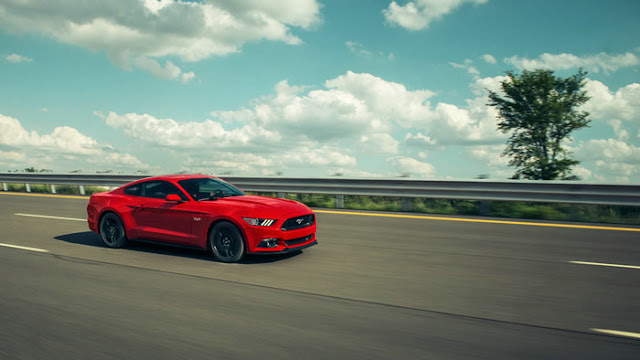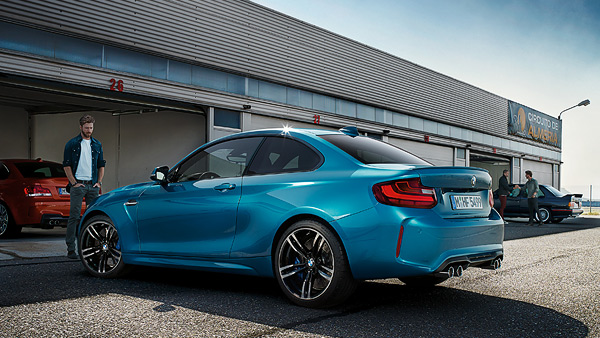What is 'homologation' and why are todays rally cars stupid?
 |
| Photo: Car Magazine |
It's winter and the roads are snowy. You drive along a B-road to avoid the congested main road. They're really just three corners but also the three best of your life. The car's sideways, the blow off valve of your Subaru is whistling while the winter tires are burying themselves into the snow. You're in a small town but you could swear you're on the Monte-Carlo rally stage and your name was Colin McRae.
This might have to do with the spirit of McRae living on in every single Subaru STI. The fact that we have cars like the these are thanks to motor sports. Lancia Delta Integrale, Mitsubishi Lancer Evolution and Dodge Charger Daytona have all one thing in common: Their heritage. Because these cars are so-called "homologation models".
Homologation, at least in a car related sense, is a motor sports term and describes a technical permission for car to compete in a sport. So when Toyota is having its Le Mans prototype inspected by the Le Mans race engineers and recieves a document saying that their car complied with the rules, it's homologated. In the 1960s to 1990s, though, the term had a... Not different, but extended meaning.
Back in the day, many race cars only homologated if a certain amount of road going examples were built by the manufacturer. What that meant precisely depended on the sport a car was competing, in so a touring or rally car obviously had to show more street versions than a sports car racing at Le Mans. All in all, however, these rules provided the ultimate race cars with number plates.
Why turn a street car into a race car if you could build a race car and then misuse it as a road car? When a manufacturer designs a car that was intended to race from the moment the designers pencil touched the paper and is then only being sold to the public for the sole reason to meet the number of the demanded road versions, we're talking about a homologation model.
This is the school of thought you oughta have to stand out in competition. Thats's also why we have homologation-extremos like the Lancia Stratos or the Toyota TS020. The latter only exists twice, in fact, with one car being in a Museum in Japan and the other in Toyotas motor sport Headquarters in Cologne, Germany.
Today, homologation is only limitedly present in motor sports. Yeah, you still technically can't bring a purpose built Prototype-esque machine to touring cars or GT races, but manufacturers are following the rules loosely. BMW, for instance, raced in GT3 for years with a car that was not based on the street chassis. The Z4 GT3 used a wider version of a car that was only sold as a roadster with either an inline four or inline six engine. They turned it into a coupe for competition and stuffed in the V8 engine from the M3, absolutely making it a prototype.
Nissan is also guilty of racing a rear-wheel driven, V8 powered GT-R in GT competition while the road going version is only offered as an all-wheel drive, twin turbo V6 car. Even Porsche isn't clean, pushing the engine from the 911 further to the front where the rear seats would normally go, to turn a rear-engined car into a mid-engine layout.
Homologation isn't worth anything these days and the sport that suffers the most isn't GT racing but the rally championships. Where taylor-made rally mosters used to dominate and 300 bhp all-wheel drive turbo cars from Mitsubishi and Subaru originated from, you'll now see cars like the Hyundai i30 and Volkswagen Polo messing around. Cars, that normally come as front-wheel driven, 90bhp diesels that all of a sudden were turned into fire breathing demons for the track.
So who's at fault for the fact that Prototypes, which have as much in common with their road going versions as what you see in NASCAR, are racing on the rally stages of the world? It's the manufacturers. Because after one financial crisis following the other, in which sports cars have sold harder, they demanded an end to homologation rules. The engine capacity was reduced from pretty much unlimited to 2 liters and then to the 1.6 liters we see today. I want someone to name me one sports car other than the Mazda Miata that has 1.6 liters. Do not dare to say "Golf".
Subaru and Mistubishi were succesfully chased away from the world championship and coward manufacturers like Volkswagen now dared to enter the stage. "But isn't it good to make it possible to more manufacturers to compete in the championship?" No. If manufacturers want to promote their 1.6-liter crapboxes then they can send them to fashion shows or movie launches. Motor sports are for developing work and for having sports cars competing against each other. And in general, 1.6 liters aren't enough for a sports car.
That the global motor sports governing body has let itself be played by the manufacturers like that is poison for the sport. There obviously needs to be some sort of dialogue between the FIA and the manufacturers because the competitions need to remain attractive for the competitors. But when you give the manufacturers too much control, you end up with something like the catastrophic Formula 1, in which 1.6 liter V6 engines are the law. An engine layout that has never been used in a car on the road in the entire history of the automobile, ever. Very relevant for car development, then!
These misjudgements led to homologation models getting out of fashion. Of course that doesn't at all mean that there aren't exciting sports cars anymore. Many sports cars, like the Porsche 911 or the Ford Mustang, historically have nothing to do with homologation. But without homologation, we'd never have seen the BMW M3, which originally was designed as a sensible saloon until BMW thought it should compete in the German touring car championship DTM. A sport in which, today, nothing apart from the engine is based on the road car. The chassis are standardized.
If yesterdays homologation rules were identical to todays ones, there wouldn't be a BMW M3. Who knows how many brillant sports car ideas we're losing because of this these days. Maybe a 300 bhp all-wheel drive Hyundai would be a best seller? That's why we absolutely should celebrate Ford. Because with the new Ford GT, the Americans are the first to build a race car that was specifically designed for competition and then sold to the public for the sole reason to be allowed to go racing.



Kommentare
Kommentar veröffentlichen